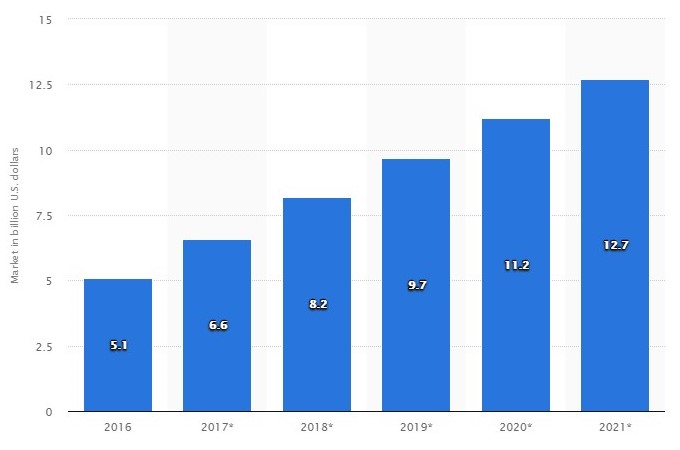

Quick Links
Quick Links

We’re raised in the culture where hard work is appreciated and valued. While it’s completely understandable, people often perceive that it’s the only way to achieve success in our fast-paced, crazy society. And it’s super easy to buy into this illusion because we are bombarded with media messages that tell us to keep going and never stop. For entrepreneurs, for example, these messages mean that they should continue to grow their business by applying all that hard work and ignoring the needs of the body.
While growth and success sound great, we often fail to understand that hard work takes a heavy toll on us. For example, a person working around the clock to build a successful business will start feeling the effect of such a lifestyle very quickly. For example, they will be experiencing constant fatigue and stress, and you know how harmful they can be to the human body. To make a long story short, this person may undermine their health and develop chronic illnesses.
Does that mean that people shouldn’t work hard to succeed? Of course it doesn’t. The purpose of this article is to show that procrastination and a little laziness is not as bad as it is perceived to be by society. Quite the contrary – the “lazy entrepreneur” philosophy can be a legitimate approach to achieving success and avoid a heavy health toll.
How can it be effective, you ask? Are there any people who accomplished great success with that “lazy entrepreneur” philosophy? Can I turn my procrastination habit into an asset?
Very good questions… Keep reading to know the answers to them.
How a Lazy Entrepreneur Can Be Successful
There are many reasons why a lazy entrepreneur can achieve just as much as others:
They Are More Relaxed
Have you had a boss or client that jumped from one thing to another? Or one that rushed work to make sure that everything got done within a tight deadline? If you have, then you probably don’t have very good memories about working with them.
That rush tends to make the people around, such as leaders, panic and get distracted. As the result, they don’t fully commit to tasks and can fail to do them as well as they actually could. Moreover, the reputation of such bosses is usually, well, you know…
On the other hand, a lazy entrepreneur has fewer worries. Therefore, they avoid panicking and stay focused on their tasks.
They Are Just As Inventive
As it was described in the Wharton Business School’s study above, business leaders who procrastinate were considered more creative and innovative. Bill Gates famously said that he would hire a lazy person to do a difficult job because a lazy person will find an easy way to do it. Makes sense, doesn’t it?
They Are More Entrepreneurial
The Independent recently described a study by Adam Grant, a professor at the Wharton Business School, who studied staff groups at two different companies and analyzed how they rated their bosses.
According to the results of the study, those bosses who procrastinated were found to be the most creative. The scientists concluded that procrastination allows the mind to wander, therefore leading to more innovative thinking.
In other words, a lazy entrepreneur’s head is not filled with obsessive thoughts and excessive responsibilities, so they can have more creative ideas and projects.
They Know How to Get Quality Rest
This one is pretty easy. The lazy entrepreneur knows how to relax, and this is something that many people don’t know how to achieve. Knowing how to relax is a critical thing that modern people just cannot learn because of the crazy lifestyle.
For example, they tend to strain themselves all the time, which results in a faster aging process. According to Everyday Health, people who don’t get enough sleep because of their lifestyle develop sleep disorders. Ultimately, they age faster than those who like to stay in bed longer.
They Don’t Lose Their Grip on Goals
The truth behind this one is pretty simple. The lazy entrepreneur is too lazy to bother with too many goals and priorities, so they focus on their own. As a result, they spend more time doing what they should do.
They Use Technology That Allows Them to Be Lazy
Technology is one of the best friends of the lazy entrepreneur. “Thank goodness, there are lots of tools out there to simplify and automate business processes and even personal errands to have more free time,” says Thomas Datt, a writer. “I learned that while working at a professional writing service where automation is everything.”
Indeed, using the help of technology makes perfect sense because it allows you to increase both the effectiveness and efficiency critical for all entrepreneurs.
Examples of Lazy but Successful People
If you’re wondering who in the world has been able to succeed while being incredibly lazy, take a look at this list.
1. Winston Churchill
You wouldn’t expect one of the greatest figures in the world’s history to be lazy, right? But here are the facts: his grades in school were so low that he didn’t even go to college. The reason? He was so lazy that he ignored homework and physical education classes. And his favorite activity was sitting in a rocking chair. This character, however, didn’t prevent him from being one of the greatest politicians in history.
2. Albert Einstein
Hermann Minkowski, a great German mathematician, called Einstein a ‘lazy dog’ who ‘never bothered about mathematics at all,’ according to New Scientist Magazine. His childhood teachers also thought he was insubordinate and lazy.
3. George W. Bush
Yes, a president can be lazy. In fact, while serving in office, Bush spent an overwhelming 879 days on vacation, including 77 trips to his own ranch in Texas. After doing the math, this time equals more than two years, which suggests that he spent 30 percent of his time away from work.
How to be Lazy but Successful
Now that you know the benefits of adopting the “lazy entrepreneur” philosophy, here are some ways to make it a reality for you.
1. Reserve Personal Time for Prioritized Activities
As an entrepreneur, you know that certain activities are more valuable for your business than others. For example, they include a meeting with a major customer or work on a new great product. This is the essence of the famous the 20/80 philosophy.
It means that you should focus your time on the 20 percent of your efforts that result in 80 percent of results, and more important activities are a part of this 20 percent.
There’s lots more to do, but you can hire freelancers to take care of the other stuff.
2. Automate Repeatable Processes
As it was mentioned above, technology is an asset that enables the lazy entrepreneur to have more free time. To illustrate the effectiveness of the automation of business processes, take a look at the global market data provided by Statista.

Size of the Business Process Automation Market Worldwide from 2016 to 2021 (in billion U.S. dollars). Source: Statista
As you can see, the volume of the market is rapidly increasing, which means that more and more businesses adopt automation tools.
You should use every opportunity to automate business processes. A simple example is the automation of social media posting. There are many great tools like HootSuite and Buffer that allow businesses to automate posting on popular social media platforms, so they are perfect for increasing the efficiency of your business.
3. Know Where Your Profits Are Coming From
Take a look at your profit margins and identify the most important sources of your revenue. Then, shift your effort to these sources and make sure that you’re investing maximum effort. Don’t worry if you have to abandon some of the less profitable customers because they are not helping you to reach your goals as much as others are.
By focusing on sources producing most of your revenues, you’ll increase the chance of getting more money with less effort.
4. Look for Ways to Make Money While You Sleep
For a lazy entrepreneur, being successful means that they’re making money even when they’re not at the office. In fact, they can be doing stuff they like, such as going out with friends or playing golf. Or even sleeping!
Fortunately, we live in the twenty-first century, and making money while sleeping is a real thing. For example, you can produce quality online products such as training videos, courses, e-books, WordPress themes, images, and other digital merchandise and sell it on the net.
Such online businesses require a minimum time investment and can produce significant profits (of course, profits depend on what product you’re selling).
The Bottom Line
It’s simple: you can be both successful and lazy because laziness is not always a bad thing. As you can see, it can come in quite handy for entrepreneurs.
As a former Polish leader Lech Walesa once famously said, “it’s the lazy people who invented the wheel and the bicycle because they didn’t like walking and carrying things.”
Do you agree?
